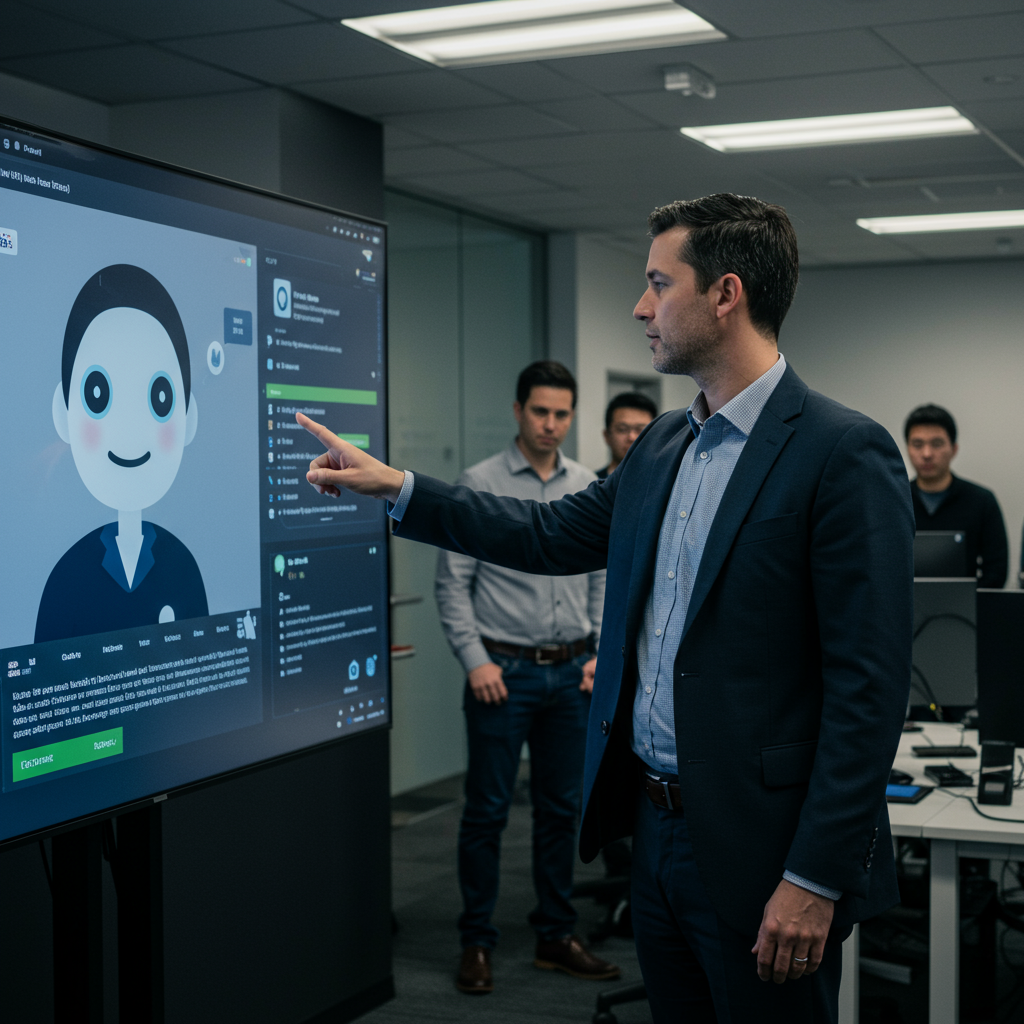Amidst significant global workforce reductions and massive investments in artificial intelligence, a microsoft executive sparked widespread outrage with controversial advice offered to employees who had just lost their jobs. The suggestion? Turn to AI chatbots like ChatGPT for support and guidance during this challenging transition. This incident highlights the growing tension between rapid technological advancement and genuine human empathy in the corporate world.
Microsoft, one of the world’s most valuable companies with a market capitalization of $3.65 trillion, recently announced layoffs impacting approximately 9,000 employees globally. These cuts, affecting less than 4% of its vast workforce, occurred across various divisions, levels, and locations, including the gaming arm, Xbox. Simultaneously, Microsoft confirmed plans for an enormous $80 billion investment in building AI-enabled data centers for fiscal year 2025. While the company hasn’t explicitly stated the layoffs are a direct result of AI adoption, the timing and CEO Satya Nadella’s emphasis on AI for growth, cost reduction, and output acceleration have fueled concerns about AI’s impact on job security across the tech sector and beyond. Other major tech players like Salesforce, Klarna, IBM, and Duolingo have also seen executives link AI integration to reduced headcounts.
A Controversial Suggestion Emerges
The specific advice that ignited criticism came from Matt Turnbull, an executive producer within Microsoft-owned Xbox. In a now-deleted LinkedIn post, Turnbull acknowledged the difficulty of navigating job loss but suggested AI tools could offer assistance when “mental energy is scarce.” He positioned these tools, specifically mentioning ChatGPT and Microsoft Copilot, as a way to “get you unstuck faster, calmer, and with more clarity.”
Turnbull proposed using large language models (LLMs) to reduce the “emotional and cognitive load” associated with losing one’s job. He provided several examples of how AI could theoretically help:
Career planning
Resume building assistance
Networking strategies
Emotional clarity and confidence building
One particularly striking example prompt Turnbull offered was for tackling imposter syndrome after a layoff: “I’m struggling with imposter syndrome after being laid off. Can you help me reframe this experience in a way that reminds me what I’m good at?”
The Irony and Backlash
The perceived irony of a Microsoft executive suggesting recently laid-off workers turn to AI chatbots – potentially tools they helped build or refine, and which are central to the company’s strategy amidst layoffs – was not lost on the public. Critics quickly labeled the advice as profoundly “tone-deaf” and lacking in empathy. The notion of recommending a conversation with a machine, funded by the company that just terminated your employment, instead of seeking human support or receiving more substantial assistance from the employer, struck many as cold and insensitive.
The backlash was swift and widespread, particularly within online communities and on platforms like X (formerly Twitter) and Reddit. The response from former employees, gamers, and the general public ranged from disbelief to outright anger.
Commentators expressed their frustration with the executive’s perceived detachment:
One social media user sarcastically compared the situation to the dystopian workplace themes in the TV show “Severance.”
Another commentator on Reddit’s r/gaming forum flatly stated that anyone advising laid-off individuals to seek therapy from a computer algorithm is “insane.”
- Many within the gaming community felt the advice was one of “the most tone-deaf and cruelest things” they had witnessed, interpreting it as proof that large corporations prioritize technology and profits over genuine employee well-being.
- futurism.com
- futurism.com
- gizmodo.com
- www.pcgamer.com
- timesofindia.indiatimes.com
The intense negative reaction ultimately led to Turnbull deleting his LinkedIn post. While his initial intentions remain open to interpretation, the swift removal indicates that he or Microsoft leadership recognized the significant public relations misstep and the emotional impact of the advice.
The Limits of AI in Human Crises
This incident underscores a critical point about the current state and limitations of AI. While large language models excel at processing information, generating text, and assisting with defined tasks like drafting emails or summarizing documents, they fundamentally lack the capacity for genuine empathy, emotional understanding, and the nuanced support required during a personal crisis like job loss. Human expertise and connection remain irreplaceable for complex emotional processing and tailored guidance.
Interestingly, recent reports highlight a burgeoning “cottage industry” where skilled human workers are increasingly hired to fix mistakes made by companies that rushed to replace human labor with AI for cost savings. Examples include marketers being paid significant amounts to completely rewrite AI-generated copy that was “basic” and ineffective, and developers troubleshooting AI-generated code errors that caused website downtime and unexpected costs, sometimes costing far more than hiring a human expert initially. This trend suggests that while AI can automate tasks, it often requires human oversight, correction, and the application of expertise that the technology currently cannot replicate, especially in creative or highly contextual fields. Applying a tool designed for data processing and text generation to the deeply human experience of grief and uncertainty following job loss demonstrates a significant misunderstanding of both the human need and the AI’s capabilities.
Beyond the Deleted Post: Broader Implications
The episode raises broader questions about the evolving relationship between technology companies, their employees, and the public. As tech giants like Microsoft invest billions in AI, promising increased efficiency and innovation, the human cost of potential job displacement looms large. Advising laid-off workers to rely on the very technology implicated in industry-wide workforce changes, particularly without offering robust human support systems, can be perceived as dismissive and lacking accountability.
This event serves as a stark reminder that while AI tools can be powerful aids for specific tasks, they are not substitutes for human connection, professional counseling, or corporate responsibility towards affected employees. As AI integration accelerates, corporations face the challenge of navigating the economic benefits while addressing the profound human impact on their workforce. Ensuring empathetic communication, providing meaningful outplacement services, and fostering a culture that values human well-being alongside technological advancement will be crucial for maintaining trust and navigating the future of work ethically. The backlash to the Xbox executive’s advice sends a clear message: when dealing with human hardship, technology is a tool, not a counselor or a substitute for genuine care and support.
Frequently Asked Questions
Why did a Microsoft executive suggest using AI after layoffs?
An executive producer at Microsoft-owned Xbox, Matt Turnbull, suggested in a now-deleted LinkedIn post that laid-off workers use AI tools like ChatGPT or Copilot. He believed these tools could help reduce the “emotional and cognitive load” of job loss, assisting with tasks like career planning, resume building, and even emotional clarity, particularly when people felt low on mental energy.
How did people react to the advice about using AI for job loss support?
The reaction on social media platforms like X and Reddit was overwhelmingly negative. Many found the advice highly insensitive and “tone-deaf,” given that the layoffs occurred alongside massive AI investments by Microsoft. Critics felt recommending a chatbot from the company that laid them off was a poor substitute for human empathy and support, leading to significant public criticism.
What does this incident suggest about the use of AI tools in sensitive situations?
The strong negative reaction highlights that while AI tools can be useful for defined tasks, they are not seen as appropriate replacements for human support, empathy, or professional help during personal crises like job loss. The incident underscores the current limitations of AI in understanding complex human emotions and the importance of human connection and genuine support systems.
Word Count Check: 1047




